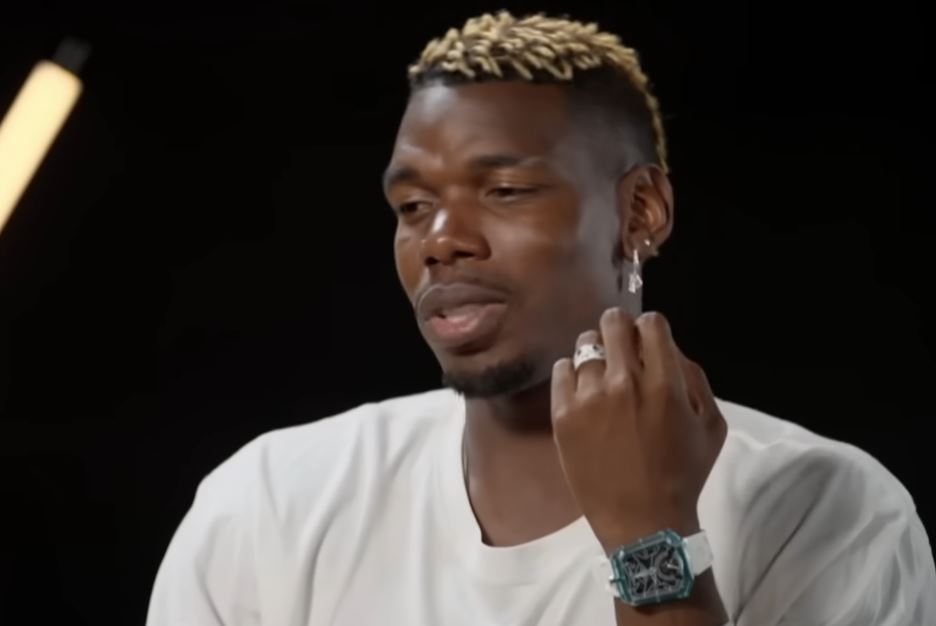
Although some may consider Paul Pogba’s move to AS Monaco to be a financial downgrade, the player sees it as a sharply focused start. By accepting a salary of €3.84 million per year, which was much less than his highest salary at Manchester United, Pogba made a deliberate shift away from revenue and toward redemption. This deliberate change is not just a response to his declining form; rather, it is a plan to reposition his career ahead of the 2026 World Cup.
Pogba’s annual salary during his last season at Manchester United was €17.6 million. He was one of the highest paid athletes at the time thanks to his compensation package, which included commercial deals, performance bonuses, and promotional incentives. His current Monaco salary, which is only 21% of that amount, feels surprisingly low but isn’t a sign of failure. Rather, it reflects ambition that has been refocused.
Paul Pogba – Bio and Monaco Contract Overview
| Full Name | Paul Labile Pogba |
|---|---|
| Date of Birth | March 15, 1993 |
| Age | 32 |
| Nationality | French |
| Current Club | AS Monaco |
| Position | Central Midfield |
| Shirt Number | 8 |
| Contract Duration | 2025–2027 |
| Annual Salary | €3.84 million |
| Weekly Salary | Approx. €73,846 |
| Former Salary (MUFC) | €17.6 million/year (2021–2022) |
| Career Earnings | €120+ million |
| Major Trophies | 2018 World Cup, Europa League, Serie A titles |
| International Caps | 91 for France |
Pogba made a calculated decision by selecting Monaco over much more lucrative options in Saudi Arabia and the US. Excess and marketing endeavors didn’t influence him. According to French reports, he is putting a possible comeback to the French national team first, which is an ambition that remarkably fits with Monaco’s current Champions League goals. This comeback to Ligue 1 is both tactical and redemptive for a 32-year-old athlete who has already competed in a World Cup.
Player valuation discussions have been rekindled in recent days by the controversy surrounding Pogba’s contract. Football appears to be moving toward more modest, performance-driven deals after previously being a field of unchecked contracts and sponsorship bloat. Pogba’s new contract, which is extremely low by Premier League standards, is remarkably similar to the tight-wage arrangements used by teams like Bayer Leverkusen and Napoli—models that are becoming more and more regarded as financially viable.
When examining Monaco’s cap structure, this change is particularly noticeable. Although Pogba now joins the club’s top earners, his monthly salary is still limited to less than €320,000 in accordance with internal guidelines. By making this choice, Monaco acquired a reputable foreign player while preserving internal wage parity. In terms of finances and competitiveness, this was an exceptionally successful tactic.
Pogba’s path to Monaco started with reflection rather than boardroom meetings. His future was uncertain after he tested positive for DHEA in 2023. The Court of Arbitration for Sport subsequently lowered the initial four-year ban to 18 months. Prior to that suspension, he made his final professional appearance in a Juventus game against Empoli. Many had written him off by the time he made his comeback to the field because he was too prone to injuries, too inconsistent, and too tarnished.
His tenacity, however, is subtly remarkable. Instead of pursuing luxury, Pogba met with Monaco officials in June 2025 to talk about his security, the club culture, and the city’s logistics in addition to his contract. This degree of specificity demonstrated his dedication to making a new beginning—on his terms, in his native country, and with greater recognition.
Additionally, this move coincides with former teammates making radically different decisions. In the latter stages of his career, Cristiano Ronaldo has embraced the Saudi Pro League and reaped significant benefits. Equally legendary Lionel Messi made MLS his home, putting his family and cultural fit first. Pogba’s choice goes against that. He is readjusting to responsibility rather than retiring into luxury.
Pogba has consistently been a bit of a paradox throughout his career—wonderful on some days and lackluster on others. Fans were frequently split during his tenure at United. He never lived up to the €89 million transfer fee, even with a Europa League title and a few memorable moments. There, he has an unimpressive Champions League record: seven knockout games, zero goals, zero assists, and a regrettable red card.
However, it feels like the story is about to change. Pogba is letting himself be evaluated on his football skills by using his notoriety without making exaggerated demands. His willingness to accept a modest salary may be especially creative in the current football economy, where elite expectations and budgetary constraints collide. It starts a dialogue about value—real value—not just monetary value but also contribution value.
Younger players in the team may also benefit greatly from Pogba’s presence in Monaco. He is a particularly useful mentor because of his experience, both positive and negative. After navigating contract disputes, media attention, and fitness meltdowns, he now shows up as more than just flash.
It is anticipated that more elderly football players will take similar routes in the years to come, returning to Europe for more sophisticated chapters rather than final farewells. Pogba’s move to Monaco is incredibly well-timed. He needs a platform that allows him to lead without being overburdened, and the club needs his flair for their continental campaign. It strikes a delicate yet potent balance.
